Filter by
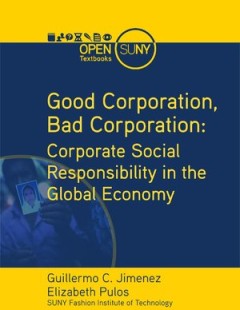
Good Corporation, Bad Corporation : Corporate Social Responsibility in the Gl…
This textbook provides an innovative, internationally oriented approach to the teaching of corporate social responsibility (C.S.R.) and business ethics. Drawing on case studies involving companies and countries around the world, the textbook explores the social, ethical, and business dynamics underlying C.S.R. in such areas as global warming, genetically modified organisms (G.M.O.) in food prod…
- Edition
- -
- ISBN/ISSN
- -
- Collation
- -
- Series Title
- -
- Call Number
- 650
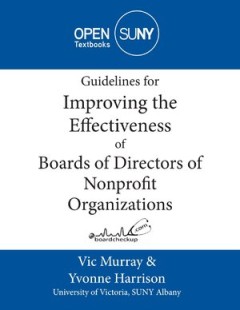
Guidelines for Improving the Effectiveness of Boards of Directors of Nonprofi…
The purpose of this book is to help boards of directors of nonprofit organizations improve their performance after completing the online board self-assessment tool found at www.boardcheckup.com. However, it can also be used as a stand-alone resource for any board seeking to enhance its effectiveness in that it also contains the diagnostic questions on which the online tool is based. The approac…
- Edition
- -
- ISBN/ISSN
- -
- Collation
- -
- Series Title
- -
- Call Number
- 650

The Legal and Ethical Environment of Business
Terence Lau and Lisa Johnson’s The Legal and Ethical Environment of Business is a book for today’s student, who expects learning to be comprised not only of substance, but also of interactive exercises and multimedia. This book streamlines the presentation of material to ensure that every page is relevant, engaging and interesting to undergraduate business students, without losing the depth…
- Edition
- -
- ISBN/ISSN
- -
- Collation
- -
- Series Title
- -
- Call Number
- 650
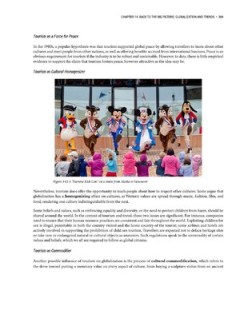
Introduction to Tourism and Hospitality in B.C.
This textbook is an introduction to the tourism and hospitality industry in British Columbia, and is written with a first year college and university audience in mind. It is a collaborative work with input from educators, industry leaders, employers and past graduates of B.C.’s tourism and hospitality management programs. All chapters have been reviewed by experts in the field. Each chapter i…
- Edition
- -
- ISBN/ISSN
- -
- Collation
- -
- Series Title
- -
- Call Number
- 650
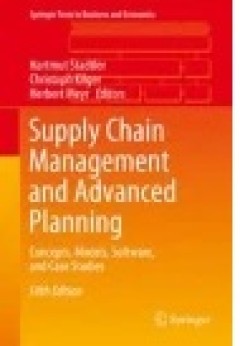
Supply Chain Management and Advanced Planning
Supply Chain Management, Enterprise Resources Planning (ERP), and Advanced Planning Systems (APS) are important concepts in order to organize and optimize the flow of materials, information and financial funds. This book, already in its fifth edition, gives a broad and up-to-date overview of the concepts underlying APS. Special emphasis is given to modeling supply chains and implementing APS su…
- Edition
- -
- ISBN/ISSN
- 978-3-642-55309-7
- Collation
- XXX, 557
- Series Title
- Springer Texts in Business and Economics
- Call Number
- -

Interpreting Canada’s 2019 Food Guide and Food Labelling for Health Profess…
This textbook provides the novice learner with a foundational understanding of Canada’s 2019 Food Guide and Food Labelling. It highlights important considerations for future health professionals seeking to adopt the new food guide into their practice, including strategies towards healthy eating. This open textbook underscores a relational inquiry approach to inform discussions with clients ab…
- Edition
- -
- ISBN/ISSN
- -
- Collation
- -
- Series Title
- -
- Call Number
- 650

Supply Chain Design and Management for Emerging Markets
This book focuses on supply chain management in emerging markets. The authors present issues relating to supply chain development covering countries such as Brazil, China, the Czech Republic, Russia, Indonesia, Malaysia, Nepal, Turkey, Egypt and South Africa and focuses on the challenges faced when the supply chain is designed and maintained. Such challenges derive from issues to do with risk, …
- Edition
- -
- ISBN/ISSN
- 978-3-319-05765-1
- Collation
- XIV, 357
- Series Title
- -
- Call Number
- -

Tourism and Travel during the Cold War : Negotiating Tourist Experiences acro…
The Iron Curtain was not an impenetrable divide, and contacts between East and West took place regularly and on various levels throughout the Cold War. This book explores how the European tourist industry transcended the ideological fault lines and the communist states attracted an ever-increasing number of Western tourists. Based on extensive original research, it examines the ramifications of…
- Edition
- -
- ISBN/ISSN
- 9780429577116
- Collation
- -
- Series Title
- -
- Call Number
- 650
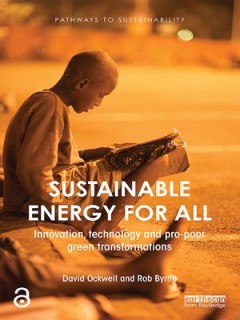
Sustainable Energy for All Innovation, technology and pro-poor green transfor…
Despite decades of effort and billions of dollars spent, two thirds of people in sub-Saharan Africa still lack access to electricity, a vital pre-cursor to economic development and poverty reduction. Ambitious international policy commitments seek to address this, but scholarship has failed to keep pace with policy ambitions, lacking both the empirical basis and the theoretical perspective to i…
- Edition
- -
- ISBN/ISSN
- -
- Collation
- -
- Series Title
- -
- Call Number
- 650

Sustainable Development Goal 3 : Health and Well-being of Ageing in Hong Kong
Sustainable Development Goals (SDGs) aim to develop a better and sustainable future for the world and the goals are part of an action plan to address poverty, hunger, health, gender equity and various pressing world issues. One of these goals looks at health and wellness. Ageing populations have become a crucial issue worldwide and this short monograph explores ageing and how the consequences o…
- Edition
- -
- ISBN/ISSN
- 9781000544282,
- Collation
- -
- Series Title
- -
- Call Number
- 650
 Computer Science, Information & General Works
Computer Science, Information & General Works  Philosophy & Psychology
Philosophy & Psychology  Religion
Religion  Social Sciences
Social Sciences  Language
Language  Pure Science
Pure Science  Applied Sciences
Applied Sciences  Art & Recreation
Art & Recreation  Literature
Literature  History & Geography
History & Geography